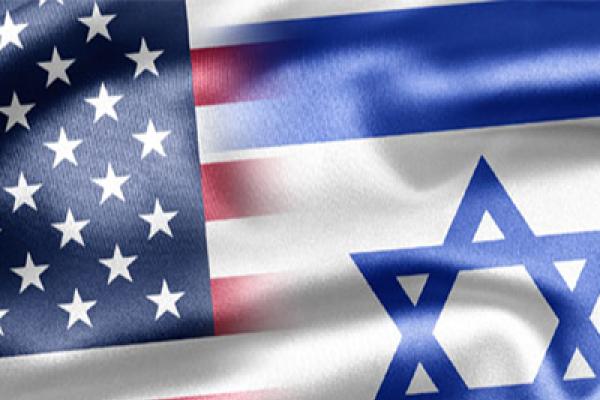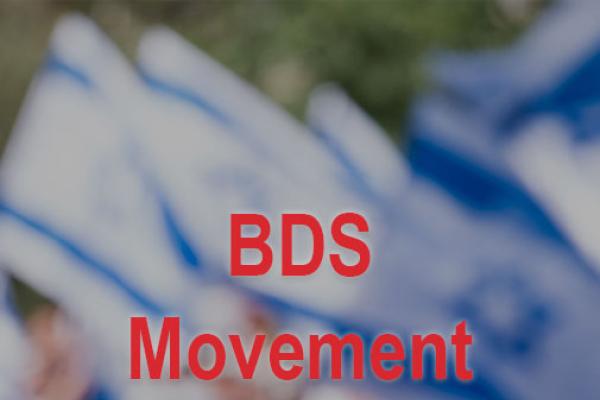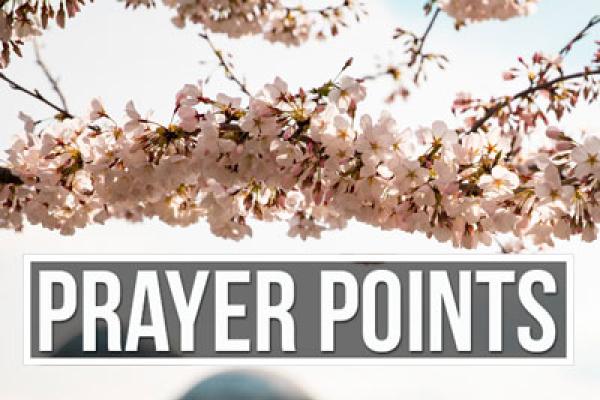By Jonathan BernisOne of Israel’s greatest prime ministers, Golda Meir, once said, “Peace will come when the Arabs love their children more than they hate us.” Since the tiny nation of Israel became a state in 1948, they have endured repeated wars and attacks. They have constantly faced the threat of a hostile Arab world that wants them gone. This tiny nation that could fit inside the borders of Lake Michigan with room to spare is surrounded by enemies on every side and greatly outnumbered by her Arab neighbors. Israel’s survival from 1948 to the present is surely a result of Divine Providence and staggering sacrifice on the part of generation after generation of Israelis.This tiny island of democracy in the sea of an Arab-Islamic world sits at the center of constant religious and civil unrest, yet the battle is really not between Israeli and Palestinian, not even between Arab and Jew, but between Islam and all other world powers and religions. Just who are Israel’s enemies and what is their stated agenda? Every single day the media bombards us with reports of this or that group engaged in conflict with Israel. It can be very confusing. My purpose in writing this article is to help you understand what is going on in the Middle East and to identify who the “players” are. It is my hope that this article simplifies the real issues involved here, so you will know how to better pray for the situation.
Israel’s Hostile Neighbors
Israel’s enemies can be divided into two groups: the surrounding Islamic nations that have historically been their opponents in past wars, and radical terrorist organizations formed more recently who are committed to their destruction working in Lebanon, the West Bank, and Gaza. Let’s first examine the surrounding nations that oppose Israel:
EGYPT
Egypt was the leading nation that fought against Israel in all of her past wars (1948, 1967, and 1973). However, after the 1978 Camp David meetings of U.S. President Jimmy Carter, Egyptian President Anwar Sadat, and Israeli Prime Minister Menachem Begin, Egypt became the first Arab nation to recognize Israel’s existence, signing a peace treaty March 26, 1979. This treaty normalized relations between Israel and Egypt, and the two countries became economic and trade partners. Reaction in the Arab world was bitter. In October 1981, soldiers linked to the Muslim Brotherhood assassinated Sadat in retaliation for his involvement. He was succeeded by his vice president, Hosni Mubarak, who ruled for thirty years and honored the peace agreement until his ouster in early 2011, when Tunisia’s uprisings spread to Egypt, bringing demands for open elections. It spelled the end of Mubarak’s regime. On February 11, 2011, Mubarak was forced from power. Now, it is almost certain that Egypt will be much more hostile toward Israel than in the past. Of great concern is the Muslim Brotherhood. Founded in 1928, the organization’s expressed purpose is two-fold: to implement Sharia worldwide, and to re-establish the global Islamic Caliphate. Outlawed in Egypt since 1954, the Muslim Brotherhood has now emerged as a legitimate political party under a new name—the Freedom and Justice Party. Watch for growing hostility toward Israel as Egypt falls to greater influence of Muslim fanatical leadership.
SYRIA
Syria has been another opponent of Israel in all her past wars and remains an enemy of Israel to this day. The revolution that spread from Tunisia to Egypt reached Syria in January 2011. In response, the government of Bashar al-Assad instituted a harsh military crackdown. It is believed that Syrian soldiers loyal to the regime in Damascus have already killed nearly one thousand protestors. Although the army has shown no signs of abandoning the current regime, the people have not yet abandoned their efforts to overthrow the government. Syria is a constant danger for Israel, continuing to demand the return of the Golan Heights, which Israel captured in 1967. Syria used this high ground to launch missile attacks on Israel’s communities in the valleys below. Fanatical Islam has strong roots, especially in southern Syria, near the Israeli border. Any new government might well be even more radicalized by these fanatics. This would result in a more volatile relationship with Israel than what currently exists. At least the current Assad government desires to maintain stable political ties with the West, and therefore exercises some restraint in dealing with Israel. This restraint would disappear if Syria were to fall into the hands of a radicalized Muslim leadership, possibly leading to an all out war against Israel.
IRAN
Iran is the greatest threat Israel currently faces. This radical Shi’ite theocracy that has ruled the country since the revolution in 1979 is dedicated to Israel’s utter destruction. Under their fanatical President, Mahmoud Ahmadinejad, Iran has been on a fast track to produce nuclear capabilities while promising to “wipe Israel off the map.” Iran finances and trains Hamas and Hezbollah terrorists, equipping them with arms to use against Israel. The international community has done little if anything to take action against Iran to stop them from achieving their nuclear goals. It is possible Israel may be forced into a pre-emptive strike for her own survival—and to save the Middle East from a nuclear holocaust. However, acting alone, she will still draw the wrath of the Arab world. It is still a disastrous scenario.
JORDAN
Jordan shares the longest border with Israel. The Hashemite Kingdom also shares the experience of suffering numerous terrorist attacks through its history, due to signing a peace treaty with Israel in 1994 and a generally perceived pro-Israel stance that is not shared by a significant portion of the largely Sunni Muslim country. Because of Jordan’s close proximity and the length of their shared border, continued good relations between Israel and Jordan are vital to Israel’s security. A breakdown of the current peace would be horrific. Yet, the same wave of unrest touching other Arab countries came to Jordan in early 2011. Protestors took to the streets, calling for the dismissal of the Prime Minister, and for Parliament to be dissolved. The government is widely viewed as corrupt and in the pockets of a few wealthy families with no regard for the common people, creating fertile ground for discontent. We need to pray that Jordan remains stable under the leadership of their moderate King, Abdullah II.
TURKEY
Turkey is now being watched closely. At the pinnacle of its power, the Ottoman Turks ruled over territory from Europe to Asia to North Africa. This powerful caliphate was the head of the Muslim world in the golden age of Islam. For decades, Turkey and Israel enjoyed a friendly relationship. However, Turkey has increasingly yielded to the growing influence of Islamic fundamentalism, a growing anti-Israel attitude, and has been a major player in the “aid flotillas” that have attempted to break the arms embargo on Gaza. Some speculate that Turkey will soon emerge as the leader of a revised Islamic empire. What we can say with certainty is that Turkey poses a growing threat to Israel as they move closer toward Muslim domination and Sharia law.
A Target for Terrorists
While the nations of the Middle East present the visible threat to Israel’s existence, radical Islamic organizations are the ever-present force fomenting strife and bloodshed, and providing momentum to an increasingly hostile and unstable landscape.
THE PLO
When the Arab nations invaded Israel in 1948, they instructed Palestinians living in the newly created Jewish state to flee their homes to neighboring countries. When the war to destroy Israel proved unsuccessful, many thousands were left as refugees. Rather than absorb them into their own populations, Israel’s Arab neighbors maintained these people in perpetual refugee status. More than sixty years later, many of these people and their descendants still live in “temporary” camps. In 1964, a new group dedicated to the “liberation of Palestine” through armed struggle, the Palestinian Liberation Organization (PLO), was formed under the leadership of Yasser Arafat. Their original charter states, “The claims of historic and spiritual ties between Jews and Palestine are not in agreement with the facts of history.” Further, the bulk of the Palestinian Charter clearly describes the “sacred” responsibility of the Palestinian Arabs and the Arab world to engage in “armed struggle” toward the “elimination of Zionism” to “liberate Palestine.” This charter, which rejects the right of Israel to exist, has never been changed. In the Arab view, this is not about two states living sideby- side in peace. It is about one state only, and that state must be Palestine. The PLO is the granddaddy of all other terrorist groups working against Israel today and has now been divided into two wings: the Palestinian Authority and Fatah.
HAMAS
Hamas is a terrorist group operating within Israel’s Palestinian borders. The Arabic acronym for the Islamic Resistance Movement, Hamas is an offshoot of the Muslim Brotherhood, and committed to eliminating Israel. When they formed in the 1980s under the leadership of their founder, Sheik Ahmed Yassin, the Brotherhood emerged as a powerful political factor, challenging the influence of the PLO. In 1987 they adopted a more nationalist and activist line under the name of Hamas. When Israel turned Gaza over to the Palestinian Authority in 2005, Hamas entered the political arena and wrested power from Fatah in the 2006 elections. The Hamas-led government refuses to recognize Israel and remains committed to “armed struggle to free Palestine.” After several years of civil strife between the (perceived) moderate Fatah party (previously the PLO), whose base was the West Bank, and radical Hamas, who remained in Gaza, the two have formed a unity government. Hamas continues to be responsible for almost daily missile attacks launched against Israel in the south from Gaza.
FATAH
Fatah is the other Palestinian political party governing within Israel, based in the West Bank. Although considered moderate, they are directly descended from Arafat’s terrorist PLO and remain closely aligned with his ideology. An entire generation has been brainwashed from childhood that Israel is illegitimate and that her destruction (and the murder of Jews) is their sacred duty. Although engaged in the peace process, they have never revised the original PLO tenets of their national charter, which calls for Israel’s destruction. Fatah and Hamas formed a unity coalition government in April 2011, with Hamas holding more governing seats than Fatah, essentially destroying any viability of future peace negotiations.
HEZBOLLAH
Hezbollah is the terrorist group that represents Israel’s direct threat on her northern border. Hezbollah is the Arabic word for “Party of God.” A Shi’ite militant group based in Lebanon, Hezbollah’s main objective is the annihilation of Israel. They gained political power and popularity by providing social services, schools, hospitals, and other essential services for thousands of Lebanese Shi’ites. Hezbollah is aligned with Syria and Iran, receiving military training, weapons, and financial support toward their mutual goal of Israel’s destruction and the establishment of global Islam. Hezbollah is armed with more missiles now than they had before the last war and have the capacity to now reach Israel’s main population centers with longer range Iranian- and Chineseproduced missiles. Fueled by perceived success in their last armed conflict with Israel, they are committed to an all out war with Israel in the near future.
Israel Needs Our Prayers and Support Now More Than Ever
The growing instability in Egypt, Syria, and Jordan, the looming threat from Iran’s nuclear weapons program, and the recent Hamas/Fatah reconciliation have created the greatest threat to Israel’s continued existence they have faced since the Yom Kippur War of 1973. Add to that the increased pressure from the U.N., the E.U., and the Obama administration’s recent statements that Israel needs to return to her pre-1967 borders, which are clearly indefensible, and you begin to get the picture.Clearly, the one unifying factor in the Arab world is the destruction of Israel. This tiny nation stands in the way of Islamic global aspirations—a global Caliphate that is believed will host the Islamic version of the Messiah, known as the Mahdi. Israel is at the epicenter of the spiritual battle of the ages—a clash of spiritual kingdoms. In the natural, Israel looks doomed; however, we must look through the lens of Scripture and remember that God Himself has promised to contend with her enemies (Zechariah 14:3).As we see all nations turn against this tiny nation, now more than ever, true Believers need to stand with and pray for Israel. Psalm 122:6 exhorts us to “pray for the peace of Jerusalem.” At its core, this is a spiritual battle and Israel needs faithful prayer warriors that will intercede daily. But how should we pray? How can there ever be peace? The word translated “peace” in Hebrew, shalom, literally means, “to bring to completion.” Regardless of what the U.N. decides this September or has decided some 55 years ago, this Land was given to the children of Israel by God as an everlasting inheritance. We must pray for God’s plan to be fulfilled in this troubled Land, for the Messiah to be revealed in the hearts of Jew and Palestinian alike, and for His plan to be brought to completion. Only then will true peace be realized.











